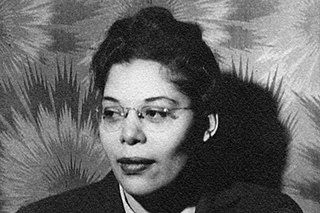A Quote by Stephenie Meyer
I’d noticed that his eyes were black – coal black.
Related Quotes
People don't realize it hurts my feelings when someone looks at my hair or my eyes, and says, 'But you're not actually black. You're black, but you're not black black, because your eyes are green.' I'm like, 'What? No, no, I'm definitely black.' Even some of my closest friends have said that. It's been a bit touchy for me.
When I was in Mecca I noticed that their, they had no color problem. That they had people there whose eyes were blue and people there whose eyes were black, people whose skin was white, people whose skin was black, people whose hair was blond, people whose hair was black, from the whitest white person to the blackest black person.
Iron and coal dominated everywhere, from grey to black: the black boots, the black stove-pipe hat, the black coach or carriage, the black iron frame of the hearth, the black cooking pots and pans and stoves. Was it a mourning? Was it protective coloration? Was it mere depression of the senses? No matter what the original color of the paleotechnic milieu might be it was soon reduced by reason of the soot and cinders that accompanied its activities, to its characteristic tones, grey, dirty-brown, black.
Black was bestlooking. ... Ebony was the best wood, the hardest wood; it was black. Virginia ham was the best ham. It was black on the outside. Tuxedos and tail coats were black and they were a man's finest, most expensive clothes. You had to use pepper to make most meats and vegetables fit to eat. The most flavorsome pepper was black. The best caviar was black. The rarest jewels were black: black opals, black pearls.
My mom is Jamaican and Chinese, and my dad is Polish and African American, so I'm pretty mixed. My nickname in high school was United Nations. I was fine with it, even though I identify as a black woman. People don't realize it hurts my feelings when someone looks at my hair or my eyes, and says, "But you're not actually black. You're black, but you're not black black, because your eyes are green." I'm like, "What? No, no, I'm definitely black." Even some of my closest friends have said that. It's been a bit touchy for me.
I would say I'm black because my parents said I'm black. I'm black because my mother's black. I'm black because I grew up in a family of all black people. I knew I was black because I grew up in an all-white neighborhood. And my parents, as part of their protective mechanisms that they were going to give to us, made it very clear what we were.
They used to call me Firefly when I was a little girl, and I always tried to figure out why I was being called a firefly. I was really black, black, black from the sun. After being in Jamaica for 13 years, my eyes were really beady and white, and my skin was really black. I must have really looked like a fly. My eyes looked like lights, like stars.
Then there was Nico di Angelo. Dang, that kid gave Leo the freaky-deakies. He sat back in his leather aviator jacket, his black T-shirt and jeans, that wicked silver skull ring on his finger, and the Stygian sword at his side. His tufts of black hair struck up in curls like baby bat wings. His eyes were sad and kind of empty, as if he’d stared into the depths of Tartarus—which he had.
Adults who loved and knew me, on many occasions sat me down and told me that I was black. As you could imagine, this had a profound impact on me and soon became my truth. Every friend I had was black; my girlfriends were black. I was seen as black, treated as black, and endured constant overt racism as a young black teenager.
I come from a real working class background, and I didn't know anyone sophisticated - except I saw Edie Sedgewick once at the Art Museum in Philly. She had these black leotards and little black pumps and this big ermine cape and all these white dogs and black sunglasses and black eyes. She was classy!






































